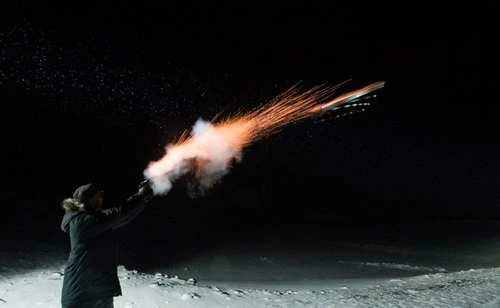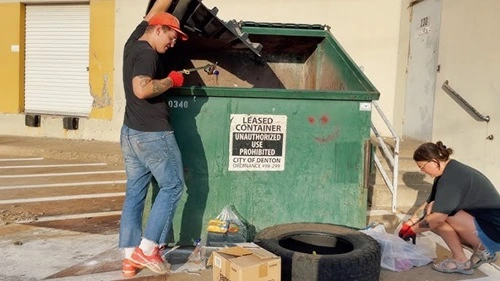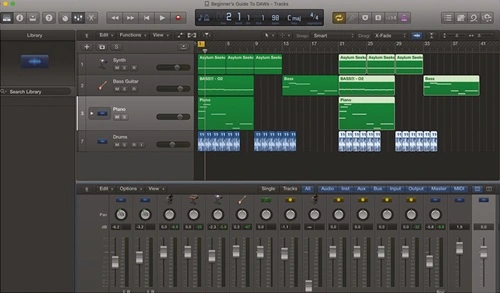No, it is not inherently illegal to shoot a flare gun, but its use is strictly regulated, and misuse can result in serious legal consequences. While flare guns are designed as emergency signaling devices, discharging them outside of intended purposes, such as during non-emergencies or in restricted areas, can violate state and federal laws.
Understanding Flare Guns and Their Legal Use
A flare gun is a handheld device that fires pyrotechnic flares to signal distress or attract attention, often used in marine or wilderness situations. Though they are not classified as firearms under most circumstances, flare guns can cause significant damage and are subject to misuse laws.
Legal Framework for Flare Gun Use
1. Federal Regulations
Flare guns are regulated under several federal laws:
- U.S. Coast Guard Regulations: Flare guns are considered safety equipment for vessels and must be stored appropriately when aboard watercraft.
- Federal Aviation Administration (FAA): Prohibits the discharge of flare guns in or near aircraft due to safety concerns.
- Federal Firearms Law: A flare gun is not classified as a firearm under the Gun Control Act of 1968. However, if modified to fire live ammunition, it is treated as a firearm, and possession or use without proper licensing is illegal.
2. State Laws
Each state has its own regulations governing the use of flare guns:
- California: Discharging a flare gun outside of an emergency is a misdemeanor under general laws prohibiting reckless use of explosives.
- Florida: Flare gun misuse that endangers public safety, such as shooting it in a residential area, can result in criminal charges.
- Texas: Similar to other signaling devices, flare guns must be used responsibly, with misuse potentially leading to charges of reckless endangerment.
When is Shooting a Flare Gun Legal?
1. Emergency Situations: Shooting a flare gun is legal when signaling for help in emergencies, such as maritime distress or being stranded in remote areas.
2. Marine Safety Compliance: Flare guns are commonly required on vessels as part of U.S. Coast Guard safety regulations. Firing them for routine drills or emergency preparedness, with proper precautions, is allowed.
3. Authorized Uses: In certain training scenarios or regulated events, flare guns can be used with explicit permission from relevant authorities.
Misuse of Flare Guns and Legal Consequences
Misusing a flare gun outside of emergencies can lead to legal penalties:
1. Criminal Charges:
- Reckless Endangerment: Discharging a flare gun in a way that endangers others can result in misdemeanor or felony charges, depending on the harm caused.
- Arson or Property Damage: If a flare gun starts a fire or causes damage, additional charges such as arson may apply.
2. Fines and Restitution:
- Violators may face fines ranging from hundreds to thousands of dollars, depending on the jurisdiction and severity of the incident.
3. Imprisonment:
- Severe cases of misuse, especially those involving injury or widespread property damage, can result in jail or prison time.
Recent Legal Updates
1. Increased Enforcement: As of 2024, law enforcement agencies have been increasing oversight of flare gun misuse due to incidents involving reckless discharge. For example:
- Florida: New state guidelines impose higher fines for non-emergency flare discharges that lead to public disruptions.
- California Wildfire Zones: Authorities have implemented stricter penalties for flare gun misuse in areas prone to wildfires.
2. Enhanced Awareness Campaigns: The U.S. Coast Guard and boating organizations have launched awareness campaigns to educate the public on proper flare gun use and the dangers of misuse.
Safety Guidelines for Using a Flare Gun
1. Only Use in Emergencies: Discharging a flare gun should be limited to life-threatening situations where immediate assistance is required.
2. Proper Storage: Keep flare guns in a safe, dry, and secure location to prevent accidental discharge.
3. Avoid Crowded Areas: Never fire a flare gun in densely populated or urban areas to prevent harm or panic.
FAQs About Shooting a Flare Gun
Q1. Is it illegal to shoot a flare gun in a non-emergency?
Ans: Yes, shooting a flare gun in a non-emergency is illegal in most jurisdictions and can lead to charges such as reckless endangerment or public nuisance.
Q2. Can I shoot a flare gun on my private property?
Ans: It depends on state and local laws. While it may not always be illegal, firing a flare gun on private property can still result in charges if it endangers others or causes damage.
Q3. Are flare guns considered firearms?
Ans: No, flare guns are not considered firearms under federal law unless they are modified to fire live ammunition, which is illegal without proper licensing.
Q4. Can I carry a flare gun in my car?
Ans: Yes, but some states may have restrictions on carrying flare guns in vehicles, particularly if they are loaded or accessible during travel.
Q5. What happens if I accidentally shoot a flare gun?
Ans: Accidental discharge may result in fines or charges if it causes harm, damage, or public alarm. Proper handling and storage can prevent such incidents.


